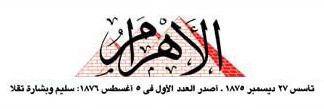
Common Risks and Challenges Facing the Arab Countries Economic development represents the greatest concern and difficulties that Arab countries suffer today, which imposes the necessity of Arab integration in order to build a large and unified economic entity, which is the only way to achieve the conditions for advancement and invulnerability.
Despite all the differences or historical results that may appear to the eye that do not herald much behind this call for economic unification, the realistic reading confirms that we have what enhances the chances of the success of this integration as components that are unique to the Arab countries that distinguish them from other major blocs, foremost among them. : Religion, common language, culture, history, and geographical affinity.
Let us first acknowledge that the joint Arab action strategy is of importance in that it aims, in its highest hopes, to safeguard national security in its various dimensions, and to achieve Arab economic unity; To achieve balanced comprehensive development and national self-reliance.
What is sought here is comprehensive integration and effective cooperation in order to overcome obstacles to development, in order to ensure the achievement of the nation’s self-immunity. Comprehensive integration in this context means: it is the integration that fulfills the purposes of comprehensive development; To distinguish it from mere economic integration, which adds social, cultural and national dimensions to the economic dimension; In order for it to be a trigger for the launch of creativity in its comprehensive sense, that is: moral creativity in its two dimensions: cognitive, cultural, and material creativity in its two dimensions: economic and urban – such as establishing industrial and agricultural integration and building new cities and energy facilities and others.
الواقع العربي وأهمية تبني استراتيجيات تغييرية جذرية2
In 1957, the Arab countries signed the Economic Unity Agreement, freedom of movement of people and capital, freedom of exchange of goods and products, residence, work, economic activity, freedom to use means of transportation, ports and civil airports, recognition of property rights, as well as coordination of economic and foreign trade policies; In order to consolidate the positions of the countries of the Council of Arab Economic Unity towards the political and security changes in the region and developments in the global economy, to achieve the economic goals of the signatory countries to the agreement by concluding trade agreements and conducting economic exchanges with each other and with other countries based on a common coordinating concept.
Following the signing of the Economic Unity Agreement, and as a result of the obstacles encountered in its implementation and the gaps in the Arab production structures and consumption patterns, the Arab countries renewed their commitment in 1980 to completing the tracks of Arab economic integration by signing the National Economic Action Charter. The charter stressed the need to adhere to a set of principles aimed at promoting national economic integration and collective self-reliance.
It also called for achieving Arab economic citizenship, reducing the gap in development and income between Arab countries, ensuring complete freedom of movement for Arab workers and their rights in the fields of education and training, facilitating the transfer of competencies within the Arab world, benefiting from skills outside it, in addition to investing Arab economic power to serve causes. Arab nationalism.
We did not enjoy the real advantages and opportunities represented by the large population market of more than 400 million people, and before we ask the obvious question about the importance of opening the door to large investments, opening Arab markets and removing obstacles, bureaucracy and protectionist policies that stand in the way of the unified Arab market, let us all remember and not repeat The experiences that we started from seventy years ago and continue to this day, let us remember that we did not try to activate comprehensive economic integration, which is not limited to construction, industry and agriculture, but includes knowledge, cultural and scientific integration. The most important of all. Will we soon see a joint Arab project for the development of human knowledge and technology?
Advisor to the Council of Arab Economic Unity and President of the Arab Federation for Digital Economy
| About | |
|---|---|
| Initiatives | |
| Knowledge | |
| Services | |
| Media Center | |
| Contact |